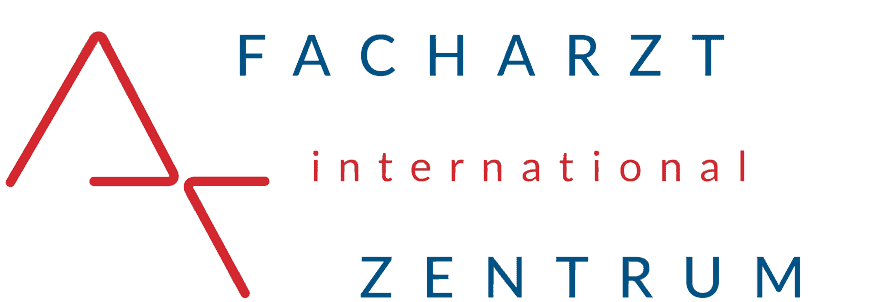Cardiology Consultation Process – What to Expect at Your Visit
Understanding the cardiology consultation process helps patients prepare effectively and maximize their appointment value. At our Frankfurt practice, we’ve designed a comprehensive yet efficient consultation approach that addresses international patients’ unique needs while delivering thorough cardiovascular assessment and personalized care planning.
How Long Does a Cardiology Consultation Typically Take?
Initial cardiology consultations typically require 60-90 minutes, allowing comprehensive evaluation without rushing. This includes detailed history taking, physical examination, electrocardiogram, and result discussion. Follow-up appointments generally last 30-45 minutes, focusing on treatment response, test result review, and management adjustments. Complex cases involving multiple diagnostic tests or extensive counseling may require additional time. We prioritize thorough assessment over volume, ensuring each patient receives adequate attention for their cardiovascular concerns.
What Medical Documents Should Patients Bring to Their Appointment?
Patients should bring previous cardiac test results including ECGs, echocardiograms, stress tests, cardiac catheterization reports, and relevant blood work. Current medication lists with dosages, discharge summaries from hospitalizations, and reports from other specialists prove invaluable. International patients benefit from bringing translated summaries of major medical events. Digital copies on USB drives facilitate record integration. Insurance cards, identification, and referral letters when applicable complete necessary documentation for efficient consultation processing.
How Is Patient Medical History Evaluated During Consultation?
Medical history evaluation follows systematic cardiovascular assessment protocols. We explore presenting symptoms’ characteristics, duration, triggers, and alleviating factors. Past cardiac events, procedures, and hospitalizations receive detailed review. Risk factor assessment includes hypertension, diabetes, cholesterol levels, smoking history, and family cardiac history. Medication history encompasses current prescriptions, allergies, and previous drug intolerances. Social history including occupation, exercise habits, dietary patterns, and stress levels provides crucial context for comprehensive cardiovascular evaluation.
What Physical Examinations Are Performed During Cardiac Consultation?
Cardiovascular physical examination begins with vital signs including blood pressure in both arms, heart rate, respiratory rate, and oxygen saturation. Cardiac auscultation identifies murmurs, irregular rhythms, and additional heart sounds. Peripheral pulse assessment, jugular venous pressure evaluation, and lung auscultation detect signs of heart failure. Extremity examination reveals edema, peripheral arterial disease signs, or venous insufficiency. Abdominal palpation may identify aortic abnormalities. This systematic approach ensures comprehensive cardiovascular status assessment.
Which Immediate Diagnostic Tests Are Available During Consultation?
Our practice performs point-of-care diagnostics enabling real-time clinical decision-making. Standard 12-lead electrocardiogram provides immediate rhythm and ischemia assessment. Transthoracic echocardiography visualizes cardiac structure and function during the visit. Office spirometry evaluates dyspnea’s pulmonary component. Ankle-brachial index testing assesses peripheral arterial disease. Point-of-care blood tests including troponin, BNP, and INR support acute decision-making. This immediate testing capability eliminates diagnostic delays common in traditional healthcare settings.
How Are Cardiovascular Risk Factors Assessed and Calculated?
Cardiovascular risk stratification utilizes validated scoring systems including SCORE2, Framingham Risk Score, and ASCVD Risk Calculator. We integrate traditional risk factors—age, gender, blood pressure, cholesterol levels, smoking status, and diabetes—with emerging markers including family history, inflammatory markers, and imaging findings. Risk calculation guides prevention intensity, from lifestyle modification alone to pharmacological intervention. Patients receive clear risk communication with visual aids, ensuring understanding of their cardiovascular risk profile and motivation for preventive measures.
What Happens After Initial Examination and Testing?
Following examination and initial testing, Dr. Asefi provides comprehensive results explanation using visual aids and anatomical models. Findings are contextualized within the patient’s overall health status and concerns. Diagnostic conclusions lead to clear treatment recommendations, whether lifestyle modification, medication initiation, or additional testing. Written summaries capture key findings, diagnoses, and treatment plans. Patients receive copies of test results with explanations. Questions are encouraged and thoroughly addressed before consultation conclusion.
How Are Treatment Plans Developed and Explained to Patients?
Treatment plan development follows evidence-based guidelines while incorporating patient preferences, lifestyle factors, and individual circumstances. We explain therapeutic options including benefits, risks, and alternatives. Medication choices consider efficacy, side effects, interactions, and cost. Lifestyle modifications receive equal emphasis with specific, achievable recommendations. Treatment goals are clearly defined with measurable outcomes. Patients participate actively in decision-making, ensuring treatment plan acceptance and adherence. Written plans include medication schedules, lifestyle recommendations, and monitoring parameters.
When Are Additional Cardiac Tests Scheduled and Coordinated?
Additional testing needs emerge from initial evaluation findings. We explain each test’s purpose, procedure, preparation requirements, and expected timeline. In-house tests including stress echocardiography, Holter monitoring, or ambulatory blood pressure monitoring are scheduled promptly. External procedures like cardiac MRI or coronary CT angiography involve coordinated referrals to trusted facilities. We handle appointment scheduling, provide preparation instructions, and ensure timely result retrieval. Test sequencing optimizes diagnostic yield while minimizing patient inconvenience.
How Does the Practice Handle Urgent Findings During Consultation?
Urgent findings trigger immediate action protocols. Acute coronary syndrome signs prompt emergency department referral with direct physician communication. Dangerous arrhythmias receive immediate treatment and monitoring. Severe hypertension gets acute management with close follow-up. We maintain established relationships with Frankfurt hospitals for smooth urgent care transitions. Patients receive clear instructions, emergency contact numbers, and when appropriate, direct admission arrangements. Our goal balances appropriate urgency with avoiding unnecessary emergency department visits.
What Follow-up Protocols Are Established After Initial Consultation?
Follow-up scheduling depends on diagnosis severity, treatment initiation, and stability. New medication starts require monitoring visits within 2-4 weeks. Chronic stable conditions may need quarterly assessments. We schedule follow-up appointments before patients leave, ensuring continuity. Between-visit protocols address medication adjustments, test results, and symptom changes. Secure messaging enables non-urgent communication. Annual comprehensive evaluations track long-term outcomes. This structured approach ensures optimal chronic disease management and preventive care delivery.
How Are Consultation Results Communicated to Other Healthcare Providers?
Comprehensive consultation reports are prepared for referring physicians and primary care providers. Reports include history summary, examination findings, test results, diagnoses, and treatment recommendations. International patients receive English-language reports suitable for home country physicians. With consent, we communicate directly with other specialists involved in patient care. Digital report delivery ensures timely communication. This collaborative approach maintains care continuity across healthcare systems, particularly important for expatriates managing health across multiple countries.
